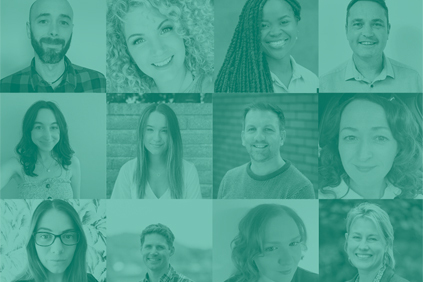Robert Mills recently wrote about running trio writing pilots to help organisations to better collaborate on bilingual content. In that blog post, Rob said we’d share insights from the participants of those trio writing pilots. I’ll share some of these in this blog post.
As well as this, we co-hosted a series of ‘Language Matters’ roadshow events with the Welsh Language Commissioner. The purpose of the roadshow was to bring tens of organisations together to share experiences and challenges when creating and publishing bilingual content. There was also a focus on how organisations also need to promote their bilingual services.
Our starting point
Before starting this work we had some experience and research to guide us. We probably also had a few assumptions.
We knew that services in Wales are not always tailored to the needs of Welsh language users, making it challenging for them to access and use these services.
It’s important to say that this work was not just about considering the work of Welsh-language content creators or translators. There is generally no shortage of Welsh-language skills, knowledge and expertise amongst translators or communications professionals.
Personally, I’ve worked in many content roles where I’ve been able to – and wanted to - use my Welsh language skills to design and publish content. Over the years, I’ve also worked closely with translators to create better publishing workflows for bilingual content – sometimes as part of more complex devolved publishing models.
One thing I’ve learnt is that successfully designing and publishing content is about more than just the ability to write well or translate from one language to the next. In Wales, I’d venture to say that the responsibility for success in this field lies just as much with those who can’t speak Welsh as those who can. But too often, organisations delegate these efforts to ‘those who can publish’ or ‘those who can speak Welsh’.
However, there is a limit to how many organisations we have worked with. It was obvious therefore that we had a lot more to learn from public sector organisations that the Welsh Language Commissioner helped us to reach.
Challenges producing bilingual content
Here's what we heard from people from tens of organisations in the roadshow events and trio writing pilots.
Low capacity and high volume
The most common challenges were about capacity. Translators and publishers are quite often working to very tight deadlines, meaning that time to collaborate (such as in trio writing) and consider the needs of the user isn’t available.
People from communication and translation teams also spoke about the volume of content that needs to be translated and published from day to day. This in turn means that there’s often no time to consider other ways of doing things.
Lack of capability and awareness
When we spoke about trio writing, many organisations told us they’d like to see more examples and case studies of organisations who have successfully tried it. They also valued the one-to-one guidance and training the pilots offered. Alongside this, training options would help organisations learn and scale this technique.
Diversity of roles and challenging collaboration
A lot of people in the roadshows were working in marketing and communications roles. This seems to be representative of the role content commonly has in public sector organisations in Wales.
We often heard how changing content production processes often involves working across teams such as IT and service providers. This collaboration is challenging in environments where there is pressure to publish with little time and capacity.
Organisations need time to adapt
It’s obvious too that there’s a great variety of publishing models and maturity within organisations. This means there is no quick fix, meaning organisations need to invest time to adapt new ways of working into their own environments and contexts.
Choosing suitable content for collaboration
It seems obvious to say that trio writing (or other types of collaboration) is not suitable for creating all types of content. This again means that content design and translation workflows need to be nuanced and context-specific.
Interestingly, Swansea University told us how they could see trio writing as a method for improving standardisation whilst forming a project. This includes things like co-designing terminologies, glossaries, templates and designing reusable content within broader campaigns.
With all the pressures within organisations, collaboration needs to be prioritised on content that directly affects user experiences.
What we’ll do next
The things we’ve heard from organisations at the start of this year have given us at CDPS a lot to think about. So, what’s next?
We’re still digesting some of the ideas shared with us and understand how best we can work with others. But we know we want to:
- do more to support organisations to try methods that work for their contexts - something is always better than nothing
- provide organisations with toolkits and templates to try things for themselves
- share more specific ideas about prioritising content for collaboration
- influence how content is perceived in organisations: not as a throw-away commodity but as an asset to meet business and user needs
We’ll also carry on listening to organisations about their challenges and successes. Personally, I’ve learnt a lot in the last few months and built relationships with new people from different organisations.
So, contact me on osian.jones@digitalpublicservices.gov.wales if you have any questions, challenges or best practice to share.
